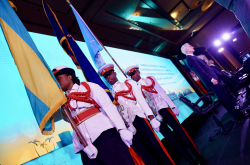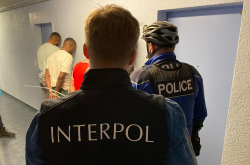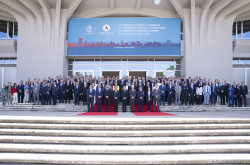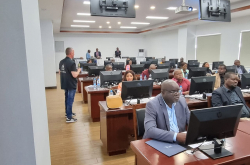Timeframe: 2025 - 2027
Proposed Overall Budget: EUR 3.4 million
Main Donors: Italian Department of Public Security
Contributors: Germany - Bundeskriminalamt (BKA)
The situation - Threat assessment
The ‘Ndrangheta is one of the most extensive and powerful criminal organizations in the world.
Its roots are in the Italian region of Calabria, but it has now expanded to more than 84 countries worldwide and continues to grow at a steady rate.
The insidious spread of mafia-type crime poses an urgent threat to international peace and security, due to its penetration of political and economic environments and the widespread corruption associated with it.
The ‘Ndrangheta is involved in a wide range of organized criminal activities, from drug trafficking and money laundering to extortion and the rigging of public contracts, generating important financial flows. .
These enormous illegal profits are then reinvested into regular companies, further strengthening the organization’s power and influence and polluting the legal economy.
Coordinating a multilateral response
I-CAN works with selected countries to combat the growing mafia phenomenon. 20 countries are directly participating to the initiative since the Project was launched in 2020.
It coordinates a global law enforcement approach by leveraging INTERPOL’s capabilities and analytical tools to share expertise, intelligence and best practices. I-CAN is encouraging police data sharing and has developped the INTERPOL Criminal Analytical File populated by more than 65.000 entities linking ‘‘Ndrangheta related entities.
Project activities
Mainly funded by the Italian Department of Public Security, the project raises global awareness and understanding about the ‘Ndrangheta and their modus operandi, to more effectively identify and arrest suspects. The second Project phase was developed under a programmatic approach, allowing additional countries to support the initiative and propose tailored activities to the I-CAN membership.
I-CAN is built around three key pillars:
- Content − Building on Italy’s direct experience and knowledge of the threat posed by ‘Ndrangheta, its structure and how it operates.
- Access − Making this vital policing information available to targeted countries in real-time, in order to pinpoint patterns, trends and potential targets for law enforcement.
- Action − Coordinating joint investigations with national law enforcement agencies to identify fugitives and arrest individuals wanted in connection with ‘Ndrangheta-linked activities.
In its second phase I-CAN will consolidate its network and focus on receiving high-quality data for operational exploitation, with a particular emphasis on the following: :
- Raising awareness about the global ‘Ndrangheta threat and map associated criminal networks;
- Providing investigative support, including on financial investigations;
- Delivering criminal and strategic analysis reports;
- Roll-out and promote the key tools developed during the Project first phase such as the E-learning suite
I-CAN key results
Arrests
As of January 2025, I-CAN had led to the arrest of 158 ‘Ndrangheta members in locations all over the world including 54 fugitives.
Edgardo Greco, known as “the ‘Ndrangheta killer”, had been on the run for 16 years. A dangerous fugitive, he had been sentenced to life imprisonment for two murders and an attempted murder in the context of a mafia war between the Pino-Sena and Perna- Pranno gangs that marked the early 1990s. Greco was arrested on 2 February 2023 in Saint Etienne, France thanks to the coordination provided by the I-CAN Project.
Rocco Morabito, alias “Tamunga” and a prominent member of the Morabito-Bruzzaniti-Palamara clan was considered one of the world’s leading drug traffickers. He was the subject of a Red Notice issued by Italy in 1995. Placed on Italy’s list of the 30 most wanted fugitives, he was arrested in Uruguay in 2017 but escaped from prison in 2019. He was apprehended again in Brazil on 24 May 2021 thanks to the support provided by the I-CAN project, and extradited to Italy in July 2022.
Key operations supported by I-CAN
I-CAN supported the transnational operation “Eureka” in 2023. Investigations tracked financial transactions related to the purchase of large quantities of drugs; possession of illegal weapons; and money laundering in Belgium, Italy, France, Portugal, Germany, and Romania to the amount of €25 million. More than 150 arrests were reported following the operation.
Countries involved
Related documents









